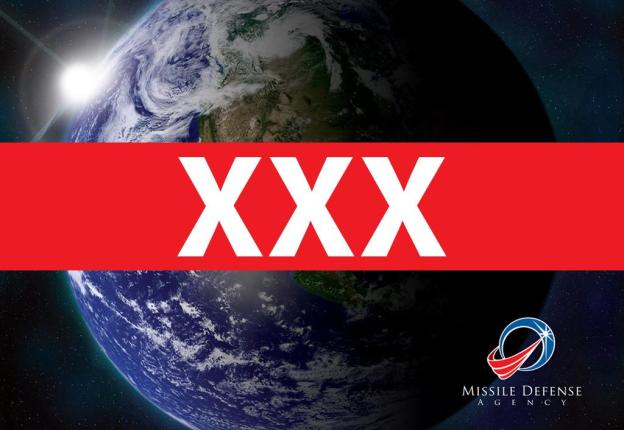
Everyone surfs the Web while on the job for non-work related things; we’ve all innocently watched viral YouTube videos or window shopped for a new pair of shoes in hopes of a quick mental break. A huge taboo is, of course, being brazen enough to access pornographic websites while using work computers. So when it was revealed that the Pentagon’s Missile Defense Agency has a porn surfing problem, we can’t tell whether this is rather appropriate or totally hilarious.
Addressing the MDA in a one-page memo, Executive Director John James Jr. warned employees that traces of inappropriate use of the corporate network have been identified over the past few months.
“Specifically, there have been instances of employees and contractors accessing websites, or transmitting messages, containing pornographic or sexually explicit images,” James wrote in the July 27 memo, reports Bloomberg News who obtained the memo. “These actions are not only unprofessional, they reflect time taken away from designated duties, are in clear violation of federal and DoD and regulations, consume network resources and can compromise the security of the network though the introduction of malware or malicious code.”
Evidently, accessing porn at work is not only against the general office behavior guidelines, it puts the MDA and the Pentagon at cyber security risk. Bloomberg News reports that employees have been downloading material from sites that contained malware and viruses, making the MDA network susceptible to data theft by foreign intelligence services. These materials can be anything from photos, videos, or sound clips that have been embedded with malicious codes to open network ports and steal confidential information.
Individuals who have been found to violate office rules will be suspended and possibly removed by the MDA, claiming that their actions put “security clearances in jeopardy.”
“The seriousness of the potential breach to operations cannot be overstated,” James wrote, noting that “network systems are subject to monitoring at all times.”
So there you have it, folks. If the Pentagon faces a cyber security issue every time someone access pornographic material, you might want to think twice about what you’re also putting at risk each time you download such material — whether from your job or a personal computer. In the meantime, stick to safer types of porn, such as an International Space Station observance, perhaps?


